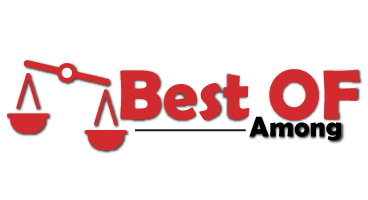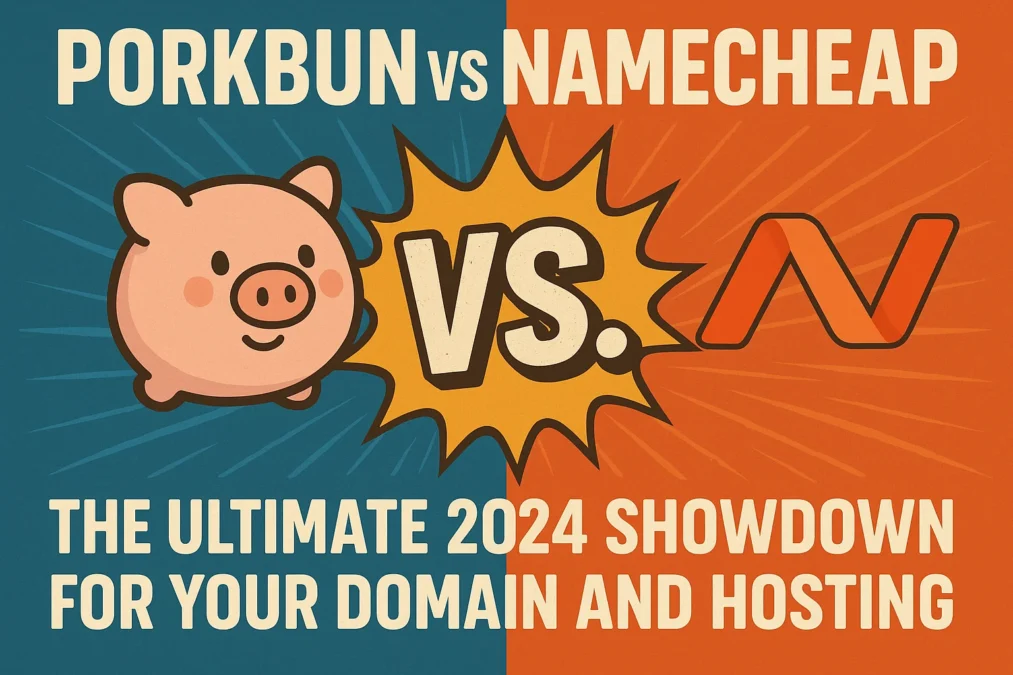Choosing a domain name registrar is one of the first and most crucial decisions you make when building an online presence. It’s the company that will act as the custodian for your digital address, the foundation upon which you’ll build your website, your brand, and your business. Get it right, and you’ll enjoy years of smooth sailing with fair pricing and reliable service. Get it wrong, and you could face unexpected price hikes, clunky interfaces, and frustrating support experiences. In the vast arena of domain registrars, two names consistently pop up as top contenders for value-conscious buyers and tech-savvy users alike: Porkbun and Namecheap.
On the surface, they might seem similar—both are known for challenging the status quo with competitive pricing and a user-friendly approach. But dig a little deeper, and you’ll find distinct personalities, strengths, and weaknesses that could make one a far better fit for you than the other. This isn’t just a story of a quirky newcomer versus an established veteran; it’s a detailed comparison of philosophies and features. We’re going to dissect every aspect of the Porkbun vs Namecheap debate, from the moment you search for a domain to the day you need help with a tricky technical issue. Our goal is to arm you with all the information you need to make a confident, informed decision. So, let’s pull back the curtain and see which of these popular registrars truly deserves your business.
Diving into the First Impressions and Overall Vibe
The moment you land on their websites, you begin to understand the fundamental difference in their brand identities. This initial experience sets the tone for your entire journey with the company, influencing not just ease of use but also how much you enjoy the process of managing your digital assets.
Porkbun hits you with a clean, modern, and almost minimalist interface. The color scheme is light and airy, with ample white space that makes it easy to find what you’re looking for. Their branding is intentionally playful and slightly irreverent, featuring a cartoon pig mascot and copywriting that doesn’t take itself too seriously. They use phrases like “unnecessarily hilarious” and “tasty domains” which immediately sets them apart from the corporate, sterile language used by many of their competitors, including giants like GoDaddy. This approachability is a core part of their charm. They want you to feel like you’re dealing with a friendly, tech-savvy buddy rather than a faceless corporation. The entire user experience is designed to be straightforward and hassle-free, stripping away the upsells and clutter that often plague this industry.
Namecheap, on the other hand, presents a more traditional, feature-packed front. Their website is denser, immediately presenting you with a prominent search bar, but also showcasing various promotions, hosting plans, and security products. The vibe is that of a professional, established, and full-service internet services provider. Having been around since 2000, Namecheap has built a reputation as a reliable alternative to the “big guys,” championing causes like internet freedom and privacy. Their branding is more corporate than Porkbun’s but still maintains a touch of approachability compared to the industry titans. The interface is functional and powerful, but it can feel a bit overwhelming to a complete beginner who is just trying to buy a single domain name. You get the sense that Namecheap is a one-stop-shop, a digital supermarket where you can get everything you need, which is both a strength and a potential source of complexity.
A Deep Dive into Domain Registration and Pricing
This is often the deciding factor for most people. While the initial advertised price is important, the real test of a registrar’s value is in its renewal rates and transfer policies. A low introductory price is just a hook; fair long-term pricing is what builds customer loyalty.
Porkbun has built its entire reputation on having what are arguably the most consistently low prices in the entire industry. When you run a Porkbun vs Namecheap search for a common TLD like a .com domain, you’ll frequently find Porkbun a few cents or even a dollar cheaper on the first-year registration. But where Porkbun truly shines is in its renewal pricing. They have made a company-wide commitment to transparency, and their renewal rates are often identical or very close to their initial promotional prices. There are no nasty surprises when your domain is up for renewal. For example, a .com domain might be $9.17 for the first year and renew at the same price or a very similar one. This policy extends to a wide variety of popular and niche TLDs, making them a paradise for domain investors and anyone with a large portfolio of sites who is tired of the “first-year discount, then jack up the price” game that many other registrars play.
Namecheap is also a fierce competitor on price, and they frequently run aggressive promotions that can sometimes undercut even Porkbun for the first year. They have built their brand on being a “cheap” alternative, and they deliver on that promise, especially for new customers. However, the renewal pricing story can be a bit more complex. While still very competitive and almost always cheaper than giants like GoDaddy or Network Solutions, Namecheap’s renewal rates for certain TLDs can be noticeably higher than their first-year promotional rate. It’s crucial to read the fine print during checkout. You might get a .com for $6 or $7 in the first year, but it could renew at over $13 or $14. This isn’t unfair, but it requires the customer to be more vigilant. For the budget-conscious, the initial savings can be significant, but for long-term planning, you need to factor in the full cost over multiple years.
Comparing the Checkout Experience and Upsells
The journey from adding a domain to your cart to completing your purchase can be a minefield of confusing upsells and dark patterns. How a company behaves at checkout speaks volumes about its respect for the customer.
Porkbun’s checkout process is a breath of fresh air. It is streamlined, simple, and remarkably free of aggressive upsells. They may offer you WHOIS privacy (which is free, so it’s more of an inclusion) and perhaps one or two other relevant items, but the path to completing your purchase is clear and uncluttered. This aligns perfectly with their brand ethos of being straightforward and user-friendly. You won’t find yourself accidentally adding expensive website builders, SSL certificates you don’t understand, or premium DNS to your cart. This respectful approach significantly reduces cognitive load and checkout friction, making the experience quick and pleasant. It feels like they trust you to know what you need and to seek out additional services if and when you require them.
Namecheap’s checkout process, while not as aggressive as some of the worst offenders in the industry, is decidedly more promotional. You will be presented with a series of offers for hosting, premium DNS, VPN services, and email hosting. While many of these offers are for genuinely useful services and are often discounted, the presentation can feel a bit pushy to some users. The screens are designed to make you consider these add-ons, and you must carefully review your cart to ensure you haven’t inadvertently selected something you didn’t want. For a savvy user who knows exactly what to skip, this is a minor inconvenience. For a beginner, it can be confusing. That said, it’s worth noting that Namecheap’s upsells are often for high-value products at good prices, so for someone looking to build a full suite of services in one place, this integrated approach can be seen as a convenience.
Exploring the World of Web Hosting and Additional Services
While domain registration is the core business, most users eventually need hosting, SSL certificates, and email. The quality and pricing of these ancillary services are critical in the Porkbun vs Namecheap discussion.
Porkbun’s approach to additional services is an extension of their overall philosophy: keep it simple and price it fairly. Their shared hosting plans are straightforward, offering a good balance of resources for small to medium-sized websites. The pricing is transparent, and the interface for managing your hosting is clean and integrated well with the domain management section. They also offer SSL certificates, email hosting, and other staples. However, their suite of services is not as vast or deeply developed as Namecheap’s. Porkbun feels more like a specialist that does a few things exceptionally well, primarily domains, and then offers competent, no-fuss versions of other common services. If you are looking for a simple hosting solution for a blog or a small business site and want to manage it all from the same clean interface as your domains, Porkbun is a fantastic choice.
Namecheap is a powerhouse when it comes to the breadth of its service catalog. They are a true one-stop-shop. Beyond domains, they offer a wide range of hosting options, including shared hosting, WordPress hosting, VPS, and dedicated servers. Their hosting plans are feature-rich and competitively priced, often including free domain privacy, free SSL certificates, and free website migration services on certain plans. They also have a robust offering of security products like VPNs, premium DNS, and CDN services. For an entrepreneur or a small business looking to consolidate all their web services with a single provider, Namecheap is incredibly compelling. The potential downside is that with so many services, the management dashboard can feel a bit fragmented and complex compared to Porkbun’s serene simplicity.
Porkbun vs Cloudflare: The Ultimate Domain and Internet Infrastructure Showdown
Analyzing the User Interface and Domain Management
Once you own domains, you need to manage them—update nameservers, configure DNS records, set up email forwarding, and initiate transfers. The quality of the control panel is where you’ll spend a significant amount of your time.
Porkbun’s domain management interface is widely praised for its clarity and intuitive design. When you log into your account, you are presented with a clean list of your domains. Clicking on any domain takes you to a well-organized management page where all the essential settings—DNS, nameservers, forwarding, contacts—are easy to find and configure. The DNS management section is particularly user-friendly, allowing both beginners and advanced users to make the changes they need without confusion. They use their own custom control panel that prioritizes user experience above all else. For anyone who has ever been baffled by the cluttered interfaces of other registrars, Porkbun’s management area feels like a revelation. It’s designed to get out of your way and let you manage your domains efficiently.
Namecheap uses the industry-standard cPanel for its hosting services and a custom-built, powerful but somewhat dense interface for domain management, often referred to as the “Namecheap Account.” Over the years, they have made significant improvements to make it more user-friendly, but it still contains a steeper learning curve than Porkbun’s. There are more tabs, more sections, and more options presented at once. For a power user, this can be great—all the tools are right there. But for a novice, it can be intimidating. Finding the specific DNS record you need to edit or setting up two-factor authentication might take a few more clicks and a bit more hunting around. It’s not poorly designed; it’s just designed for scale and functionality, which sometimes comes at the cost of absolute simplicity.
Evaluating Customer Support and Knowledge Resources
No matter how good a service is, there will come a time when you need help. The responsiveness, knowledge, and accessibility of customer support can turn a crisis into a minor hiccup or a catastrophic failure.
Porkbun’s support is almost legendary in its quality within certain online communities. They offer 24/7 live chat and email support, and by nearly all accounts, their support agents are not only responsive but also genuinely knowledgeable and helpful. The casual, friendly tone of their branding carries over to their support interactions. Users report that support staff take the time to understand problems fully and provide clear, effective solutions without relying on canned responses. They also maintain a helpful knowledge base with articles and tutorials. The overall sentiment is that Porkbun invests heavily in its support team, viewing it as a core feature of their service rather than a cost center. This results in exceptionally high customer satisfaction.
Namecheap also provides 24/7 live chat support and has a ticket system for more complex issues. Their support is generally considered good and reliable. However, the experience can be more variable than with Porkbun. Due to their massive customer base, you may occasionally encounter a support agent who is less experienced or seems to be rushing through tickets. That said, the vast majority of interactions are positive, and they resolve issues effectively. Where Namecheap truly excels is in its knowledge base. It is one of the most comprehensive and well-organized repositories of help articles, tutorials, and guides in the industry. For many common problems, you can find a step-by-step guide that will walk you through the solution without ever needing to contact support. This self-service option is incredibly valuable.
Security and Free Features Compared
In today’s online environment, security is non-negotiable. The baseline features a registrar includes for free can save you money and protect your privacy from day one.
Porkbun’s standout free feature is its inclusion of free WHOIS privacy with every single domain registration, for the life of the domain. There are no exceptions and no hidden fees. This is a massive benefit, as WHOIS privacy shields your personal contact information from public view, reducing spam and potential security risks. They also offer free SSL certificates for one year with most domains, which is a great way to get started with HTTPS encryption for your site. Their security posture is robust, with features like two-factor authentication (2FA) readily available to secure your account. The commitment to bundling these essential privacy and security features at no extra cost is a core part of their value proposition.
Namecheap also includes free WHOIS privacy with most domain registrations and transfers, a policy that has been a cornerstone of their brand for years. They are strong advocates for user privacy. They also provide a free, one-year SSL certificate with many domain purchases. Like Porkbun, they offer 2FA to protect your account. In terms of baseline free features, the two are very closely matched. Both understand that privacy and basic security should be standard, not premium add-ons. The difference is often negligible, though it’s always wise to double-check the specific TLD you’re registering, as privacy rules can vary for certain country-code domains.
The Final Verdict: A Side-by-Side Comparison
To make the Porkbun vs Namecheap decision easier, let’s condense our analysis into a clear comparison table.
| Feature | Porkbun | Namecheap |
|---|---|---|
| Overall Vibe | Playful, minimalist, user-friendly. “The friendly techie.” | Established, feature-rich, one-stop-shop. “The reliable workhorse.” |
| Domain Pricing | Winner. Consistently low initial and renewal prices across most TLDs. High transparency. | Very competitive first-year prices, but renewals can be higher. Still a great value. |
| Checkout Experience | Winner. Streamlined, minimal upsells, respectful and fast. | More promotional upsells for hosting and other services. Requires more attention. |
| User Interface | Winner. Exceptionally clean, intuitive, and easy to navigate for beginners and pros. | Powerful and feature-packed, but can feel cluttered and has a steeper learning curve. |
| Customer Support | Winner. Consistently praised for fast, knowledgeable, and friendly 24/7 live chat. | Generally good and reliable 24/7 support, but can be variable due to scale. Excellent knowledge base. |
| Free Features | Free lifelong WHOIS privacy, free 1-year SSL on most domains. | Free WHOIS privacy on most domains, free 1-year SSL on many domains. A very close tie. |
| Hosting & Services | Simple, straightforward shared hosting and email. A specialist’s approach. | Winner. Vast suite of services: shared, WordPress, VPS, dedicated hosting, VPN, CDN, etc. |
| Ideal For | Domain investors, developers, bloggers, and anyone who values simplicity, transparency, and top-tier support. | Small businesses, entrepreneurs, and users wanting to bundle all web services with one full-featured provider. |
“Porkbun feels like the friendly local coffee shop that knows your name and order, while Namecheap is the well-stocked, reliable supermarket where you can do all your shopping in one trip.”
Frequently Asked Questions
What is the main difference between Porkbun and Namecheap?
The core difference lies in their philosophy and execution. Porkbun focuses on providing a supremely user-friendly, transparent, and hassle-free experience, primarily around domain registration with consistently low prices. Namecheap offers a broader, one-stop-shop ecosystem with a vast array of hosting and security services, all at competitive prices, but with a slightly more complex interface.
Which registrar is truly cheaper in the long run, Porkbun or Namecheap?
For long-term domain ownership, Porkbun often has a slight edge due to its commitment to keeping renewal prices very close to its initial promotional prices. While Namecheap can have incredible first-year deals, you must always check the renewal rate, as it can be higher. For a single .com domain over five years, Porkbun will likely cost you less, but for a diverse portfolio, it’s best to compare specific TLDs.
Is it easy to transfer my domain from Namecheap to Porkbun or vice versa?
Yes, transferring domains between ICANN-accredited registrars like Porkbun and Namecheap is a standardized process. It typically involves unlocking the domain at your current registrar, obtaining an authorization code (EPP code), and then initiating the transfer at the new registrar. Both Porkbun and Namecheap have detailed guides and support to help you through the process. Transfers usually extend your registration by a year.
How does the quality of web hosting compare between Porkbun and Namecheap?
Namecheap has a more mature and extensive hosting infrastructure, offering a wider variety of plans from shared to dedicated servers. Their hosting is feature-rich and well-regarded. Porkbun’s hosting is more streamlined and designed for simplicity and ease of use, perfect for standard websites but without the advanced options of Namecheap. For basic needs, both are excellent; for more power and variety, Namecheap wins.
Which one is better for a beginner, Porkbun or Namecheap?
For an absolute beginner who is primarily focused on buying and managing a domain name with minimal fuss, Porkbun is arguably the better choice. Its intuitive interface, straightforward checkout, and lack of overwhelming upsells create a gentler learning curve. However, if the beginner plans to immediately purchase hosting and build a website through the same provider, Namecheap’s integrated (though more complex) ecosystem can also be a good fit, especially with its extensive knowledge base for self-help.
Conclusion
The Porkbun vs Namecheap debate doesn’t have a single, universal winner. The best choice is a deeply personal one that depends on your specific priorities and technical comfort level.
Choose Porkbun if: Your highest priorities are absolute price transparency, a clean and intuitive user experience, and best-in-class customer support. You are a domain enthusiast, a developer managing multiple clients, a blogger, or simply someone who is tired of corporate clutter and wants a registrar that feels like a trusted partner. Porkbun excels by doing the fundamentals flawlessly and treating its customers with respect.
Choose Namecheap if: You are looking for a one-stop-shop to meet all your web service needs under one roof. You value the convenience of bundling domains, robust hosting, SSL, and security products from a single, established provider. You don’t mind navigating a more complex interface in exchange for powerful features and are comfortable using a comprehensive knowledge base to solve problems.
Both Porkbun and Namecheap are exceptional registrars that offer tremendous value and a far superior experience to the industry’s worst offenders. You can confidently register your domain with either and know you’ve made a good choice. It ultimately comes down to style: do you prefer the minimalist, user-focused elegance of Porkbun, or the powerful, all-inclusive ecosystem of Namecheap? Your domain is in good hands either way.



